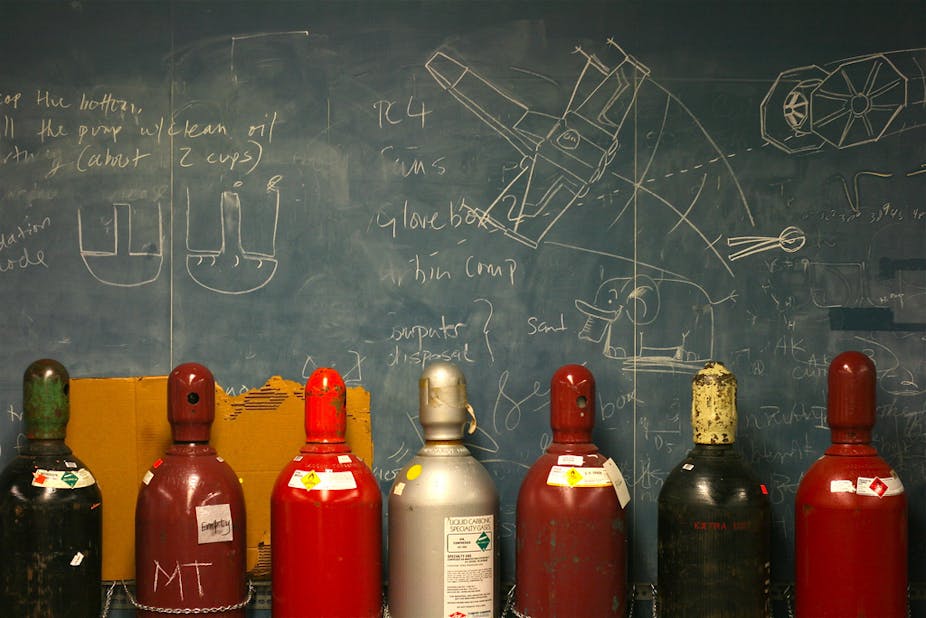On June 30 Notre Dame University intends to host a lecture by Lord Christopher Monckton, one of the world’s most flamboyant climate change deniers.
On learning of this I wrote an open letter to Notre Dame protesting their decision and asking them to cancel the lecture.
I feel very strongly that Notre Dame’s actions are a betrayal of the academic community, and many of my academic colleagues in Australia and beyond agree. The letter has widespread support from some of Australia’s leading researchers in the area of climate science, policy and law.
The currency for credible academic research is academic integrity. Academic integrity requires honesty, fairness and above all rigour. The reputation of academics and academic institutions relies on this integrity being strictly upheld and supported by a process of peer-review.
We are trained as students to respect the academic process and to pursue our research accordingly. Climate change research, like any academic research, follows these guidelines.
And then there are figures like Lord Monckton. Monckton has no scientific qualifications (he is trained in classics and journalism). He claims that scientists cannot possibly predict or understand the behaviour of the Earth’s climate. He claims that climate science is the “greatest fraud of our time”.
He undermines, ridicules and abuses the values of academic integrity. He accuses climate researchers of doing false research for the purpose of obtaining research funding. He maliciously misrepresents this research.
Respect for peer-reviewed climate science leads to Monckton labelling you a Nazi, authoritarian, fascist, communist, or (if you are young enough) a member of the Hitler Youth.
Monckton recently likened Professor Ross Garnaut to a Nazi, showing a slide with a quote from Garnaut next to a swastika and claiming that the Professor expected people to “accept authority without question”. He called this a fascist point of view. This was an outrageous slur on one of Australia’s most respected economists and the academic community at large.
When scientists such as Professor John Abraham scrutinise Monckton’s misrepresentation of peer-reviewed scientific research, Monckton accuses them of “deliberately dishonest” attacks on his integrity and reputation and threatens to sue them.
Clearly, Monckton is unfamiliar with the peer-review process and does not seem to want to take part in it. This is hardly surprising since his claims cannot stand up to scrutiny.
And this brings me to Notre Dame University’s “proud” decision to host a lecture by Monckton. At the bidding of one of its benefactors (Hancock Prospecting, which is sponsoring Monckton’s lecture) the university is lending its hard won credibility to Monckton.
Notre Dame has a responsibility to preserve the integrity of academic and scientific research by standing with other Australian universities in condemning figures such as Monckton. These figures misrepresent and undermine the work of those who uphold academic standards.
It is grossly inappropriate for a university to provide such views with a platform. Christopher Monckton enjoys the freedom to speak his mind as we all do, and I do not challenge this. What I do challenge is the propriety of a university lending its authority to Monckton who, as Malcolm Turnbull pointed out last week, is little more than “a vaudeville artist”.
Mr Turnbull noted further that Monckton “has no credibility, politically or scientifically, particularly in The United Kingdom and … is a professional sensationalist.”
Would a reputable university invite someone who denied the link between HIV and AIDS or smoking and lung cancer to speak to medical students? Would a reputable university invite an advocate of creationism speak to biology students? Would a reputable university invite a climate change denier with no scientific qualifications to speak to geophysics students?
The answer to each of these questions must be no, and likewise Notre Dame should say no to Christopher Monckton.

